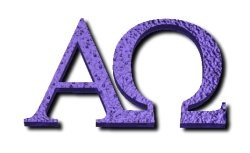
G D His Existence And His Nature -Rev. R. Garigou-Lagrange, O.P.
FOURTH PROOF: FROM THE DEGREES OF PERFECTION IN BEINGS
The special feature of this proof is the perfection of the First Cause. It runs as follows: The beings in this world form a hierarchy: some of them are more perfect than others, in passing through the various degrees of the vegetative and sensitive life, from the stone up to man. All beings have their perfection or goodness, but the word good denotes merely a similitude or analogy in such phrases as: a good stone, a good fruit, a good house, a good master, a thoroughly good man. In like manner, unity is of various degrees, and the unity of the soul excels that of the body. Thus, also, there is a greater degree of truth in principles than in conclusions, and in necessary propositions than in those that are contingent.
Now, we speak of different things as more or less perfect, according to the varying degrees in which they approach that which is the most perfect, and the cause of the others. In fact, as St. Thomas points out,
C. Gentes, Bk. II, ch. 15.
"whatever belongs to a thing by its very nature, and has not been caused in it, cannot belong to it in an imperfect manner." A being which has but imperfect goodness does not possess this quality of and by itself; for if the goodness were not caused in it, it would demand such limitation by and of itself, and at the same time it would not demand such limitation by and of itself, since it is not limited in the same manner. In other words, every imperfect being is caused, because it is composite, mixed, and the perfection which it contains is mingled with imperfection. Now, as St. Thomas says, "things which are in themselves different cannot unite, unless something causes them to unite."
Summa Theol., Ia, q. 3, a. 7.
Thus, existence, perfection, and beauty, are limited in different ways in plants, in animals, and in man. Of themselves they do not imply this or that particular limitation, and in their formal concepts they do not even imply any limitation. Therefore, in all these imperfect beings, existence, perfection, and beauty are the effects of a Supreme Cause, which must be absolutely perfect, free from all imperfection, and absolutely simple. Moreover, this Cause must be a self-subsisting Being, unlimited, infinitely perfect, i.e., Goodness, Truth, and Beauty itself. Hence it follows that this Supreme Being is absolutely transcendental, really and essentially distinct from the world, which is always composite and imperfect.
Ibid., Ia, q. 3, a. 4 and 8; q. 7, a. 1 etc.
This proof clearly differs from that of St. Anselm, since it does not start from the notion of the supremely perfect Being, but from the actual existence of various degrees of perfection in things. Thus it ascends by way of causality to the absolutely perfect Being, because no imperfect being can have its raison d’être in itself.
It is by this demonstration that St. Thomas establishes the existence of intelligence,
Ibid., Ia, q. 79, a. 4.
of truth,
C. Gentes, Bk. II, c. 84.
of goodness,
Summa Theol., Ia IIae, q. 2, a. 7 and 8.
and of the natural law.
Ia IIae, q. 91, a. 2.
Copyright ©1999-2023 Wildfire Fellowship, Inc all rights reserved

 Keep Site Running
Keep Site Running